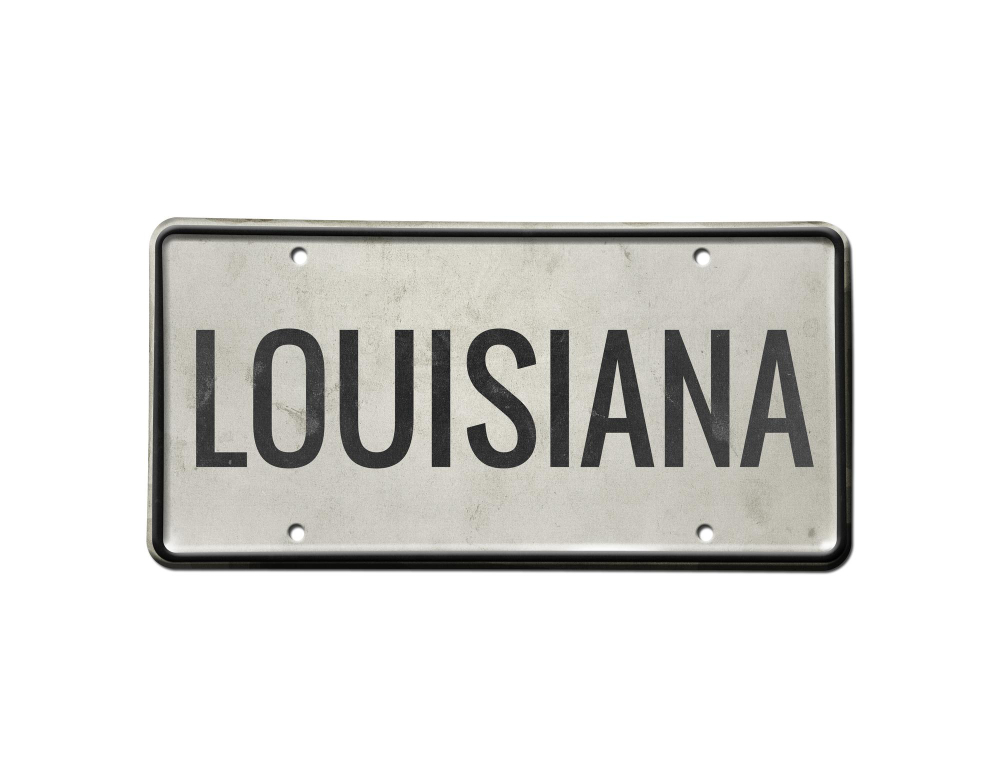
Ready, set, retrieve!
Dig up the best insurance providers in seconds
"*" indicates required fields
Call a licensed agent: 833-964-9663
On average, drivers with a good credit rating pay 84% less for car insurance than those with poor credit. Car insurance companies in every state besides Hawaii, California, and Massachusetts take your credit score into consideration when determining your yearly premium. However, a recent study by the Consumer Federation of America (CFA) showed that this factor plays a more substantial role than you may think.
According to the study, drivers in Louisiana who have poor credit are at risk of paying more for car insurance than drivers who have been convicted of a DWI but have an excellent credit rating.

According to Rate Retriever’s quarterly insurance rates report, car insurance premiums in Louisiana cost drivers an average of $2,558 per year, 40.2% higher than the national average of $1,824. In Louisiana, a driver’s credit score plays a fairly large part in determining car insurance rates.
Rate Retriever’s report showed that Louisiana drivers with bad credit may pay up to 74% more for their car insurance when compared to those with good credit. The disparity is even more severe when looking at drivers with excellent credit scores, as they pay an average of 20% less even than those drivers with good credit.
The CFA’s study dug deeper into this wide price range, suggesting that car insurance premiums are not really a reflection of the risk a driver brings to a car insurance company, but rather of that driver’s socioeconomic status.
According to the study, drivers in Louisiana with a good driving record but poor credit pay an average of $905 more on their annual premium than drivers with DWI convictions and excellent credit.
Furthermore, this issue is not exclusive to Louisiana. The CFA found that Alaska, California, Hawaii, Massachusetts, and Michigan are the only states that had a higher car insurance penalty for DWIs than bad credit.
Keep in mind that California, Hawaii, and Massachusetts have regulations prohibiting car insurance companies from considering credit scores as a factor in rate determination. This means that there is only one state where credit score plays a role in insurance pricing that has a higher penalty for a DWI conviction than a bad credit rating.
Even then, the study found that drivers in Michigan with a DWI conviction and excellent credit are paying just $19 more on average than those with poor credit and a good driving history.
The influence that credit scores have over car insurance premiums has been a controversial topic in recent years. Drivers have found themselves wondering why they are being charged higher rates based on a factor that has virtually nothing to do with their ability to drive safely, but car insurance companies claim that research has shown that people with bad credit are more likely to file insurance claims.
Since there is evidence that bad credit is correlated with the number of claims a driver files, car insurance companies take on more risk when covering these drivers, which is why rates are higher.
Overall, if you live in one of the 47 states that consider credit score in car insurance pricing, doing what you can to improve your score is a good way to save money on your annual car insurance premium.
One of the best ways to save on your car insurance – even with a poor credit score – is to compare all the car insurance companies in your area to be sure you are getting the best rate.
Since car insurance rates are highly personalized, every driver’s rate will look different from company to company. Rate Retriever offers a simple quiz that helps you quickly compare personalized rates from car insurance companies in your area and find the best fit for you.
Car insurance companies determine how much they charge you based on your driver profile. Factors that can impact your rates include:
Read more about the factors that impact your car insurance rate
Switching your car insurance is easy, even if you are in the middle of your current policy.
Here are some helpful tips to consider to switch your car insurance:
The answer to this question depends on where you live and what you would like to cover.
Each state has its own minimum requirements on the type and amount of insurance needed. When you’re trying to determine what and how much car insurance you need, you can start by reviewing your state’s requirements.
Find out what’s required in your state
Once you review your state’s minimum requirements, you may find that you want additional coverage. For example, sometimes owners of new cars want comprehensive coverage to insure their car from natural disasters and vandalism, even though comprehensive coverage isn’t required by their state. To figure out what insurance you want, you can review the different types of insurance to decide what makes the most sense for your situation.
The biggest difference between Rate Retriever and other comparison sites is that we are a free and impartial research tool NOT an insurance marketplace. This means you can’t purchase a policy directly through RateRetriever.com, but you can use our tool to independently research your options and seamlessly connect with the provider you choose.
Unlike other insurance comparison sites, we:
We like to think that Rate Retriever is your insurance companion, not just another insurance comparison site. Our values guide everything we do, which is why we strive to offer transparent, trustworthy insurance tools.
There are many ways you can try to get cheaper car insurance. The first is simply to get quotes from multiple providers. This will help you determine if you’re currently receiving the cheapest rates based on your needs and driver profile. Rate Retriever makes the comparison process easy.
Sometimes, the reason your car insurance is so expensive is due to your driver profile. For example, drivers under 20 years old usually pay more for insurance than more experienced drivers, and drivers with a recent at-fault accident or traffic violation typically pay more.
There are ways to lower the cost of your insurance such as taking a defensive driving course. Check with your provider to see if there are any discounts you qualify for or can reasonably earn.
Rate Retriever works with national and local insurance providers to provide our users with a seamless insurance shopping experience. We may earn a commission from our insurance provider partners when you click on a link, call, or purchase a policy from one of the providers listed on our site. That said, we’re committed to providing you with accurate, bias-free information, and we do not allow our partnerships to limit the results or influence the information we share with you.
We do not sell your personal information, charge you for using our tools, or sell you insurance policies. Additionally, should you choose to purchase a policy from one of our partners, the price you pay will not be adversely affected.

Dig up the best insurance providers in seconds
"*" indicates required fields
Copyright © Rate Retriever Insurance Services LLC, a wholly-owned subsidiary of Soleo Communications, Inc. 2024. All Rights Reserved. Use of Rate Retriever’s services is subject to our Privacy Policy, Disclaimer, and Terms and Conditions. Accessibility statement. Cookie policy. Do Not Sell My Personal Info.